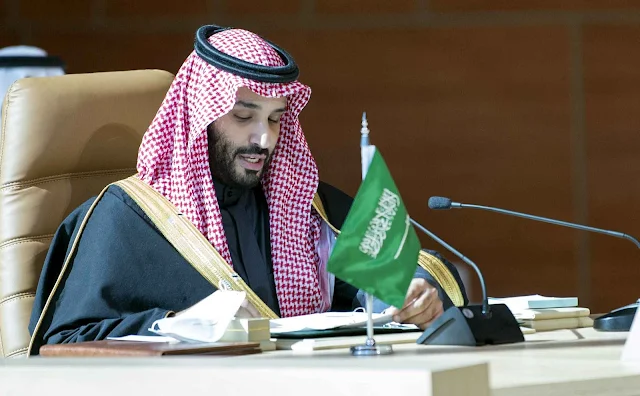In the realm of social media, stories often emerge that
capture the public’s attention, inciting a flurry of reactions and debates. One
such story is that of Muhammad Bin Mursal, a native of Najran, Saudi Arabia,
whose life and actions have become a subject of intense speculation and
discussion.
The Incident
Muhammad Bin Mursal and his cousin, Moeed Bin Abdullah, were
reportedly entangled in personal or familial conflicts that tragically
culminated in Moeed’s demise. The precise details of this incident remain
shrouded in uncertainty, but the aftermath was undeniably tragic.
The Aftermath
Following the incident, Muhammad was apprehended by
authorities and, after an investigation, was sentenced to death. He faced the
ultimate penalty, execution, for his involvement in the fatal dispute with his
cousin. This somber event took place on September 20, 2023.
The Social Media Storm
The circumstances of his death have become a subject of
intense speculation on various social media platforms. According to circulating
reports, Muhammad Bin Mursal stands accused of the homicide of his cousin,
Moeed bin Abdullah bin Mohsen Al-Yami.
The Legal and Ethical Debates
Muhammad Bin Mursal’s case has cast a spotlight on the legal
and ethical debates in Saudi Arabia and beyond. Originating from Yemen,
Mursal’s actions had led to a breach of prison security, prompting a
reassessment of the reception rights system. Many are calling for legal
scrutiny and restitution for those affected.
Conversely, some defenders argue that Mursal’s uncles played
a role and cite the traditional concept of lineage feuds (qisas) as a potential
motive for retribution. These advocates allege that Mursal was a fugitive and
possibly involved in espionage.
The Role of Tribalism in Muhammad Bin Mursal Case
The case has also sparked discussions regarding the role of
tribalism within the Saudi institution. Some view it as a unifying factor,
while others perceive it as a source of isolation and heightened tensions.
The story of Muhammad Bin Mursal serves as a stark reminder
of the complexities and controversies that can arise from personal conflicts
and the subsequent legal proceedings. As the debates continue, one can only
hope that justice is served and lessons are learned from this tragic tale.
Who was Moeed bin Abdullah?
Moeed bin Abdullah bin Mohsen Al-Yami was the cousin of
Muhammad Bin Mursa. Unfortunately, the precise details of Moeed bin
Abdullah’s life and his relationship with Muhammad Bin Mursal remain shrouded
in uncertainty. The circumstances surrounding his death have become a subject
of intense speculation on various social media platforms. It is reported that
he was killed by his cousin, Muhammad Bin Mursal.
What is the legal system in Saudi Arabia? for Muhammad Bin Mursal Case?
The legal system of Saudi Arabia is based on Sharia, which
is Islamic law derived from the Quran and the Sunnah (the traditions) of the
Islamic prophet Muhammad. The sources of Sharia also include Islamic scholarly
consensus developed after Muhammad’s death. Its interpretation by judges in
Saudi Arabia is influenced by the medieval texts of the literalist Hanbali
school of Fiqh.
Uniquely in the Muslim world, Sharia has been adopted by Saudi
Arabia in an uncodified form. This, and the lack of judicial precedent, has
resulted in considerable uncertainty in the scope and content of the country’s
laws. The government therefore announced its intention to codify Sharia in
2010, and, in 2018, a sourcebook of legal principles and precedents was published
by the Saudi government.
Sharia has also been supplemented by regulations issued by
royal decree covering modern issues such as intellectual property and corporate
law. Nevertheless, Sharia remains the primary source of law, especially in
areas such as criminal, family, commercial, and contract law, and the Qur’an and
the Sunnah are declared to be the country’s constitution.
The current Saudi court system was created by King AbdulAziz, who founded the Kingdom of Saudi Arabia in 1932 and was introduced to
the country in stages between 1927 and 1960. It comprises general and summary
Sharia courts, with some administrative tribunals to deal with disputes on
specific modern regulations. Trials in Saudi Arabia are bench trials.
Criminal law punishments in Saudi Arabia include public
beheading, stoning, amputation, and lashing. Serious criminal offenses include
not only internationally recognized crimes such as murder, rape, theft and
robbery, but also apostasy, adultery, witchcraft, and sorcery. In addition to
the regular police force, Saudi Arabia has a secret police, the Mabahith, and a “religious police”, the Mutawa. The latter enforces Islamic social and moral
norms, but their powers have greatly been restricted over the last few years.
Western-based human rights organizations, such as Amnesty
International and Human Rights Watch, have criticized the activities of both
the Mabahith and the Mutawa, as well as several other aspects of human
rights in Saudi Arabia. These include the number of executions, the range of
offences that are subject to the death penalty, the lack of safeguards for the
accused in the criminal justice system, the treatment of homosexuals, the use
of torture, the lack of religious freedom, and the highly disadvantaged
position of women




0 Comments
Post a Comment